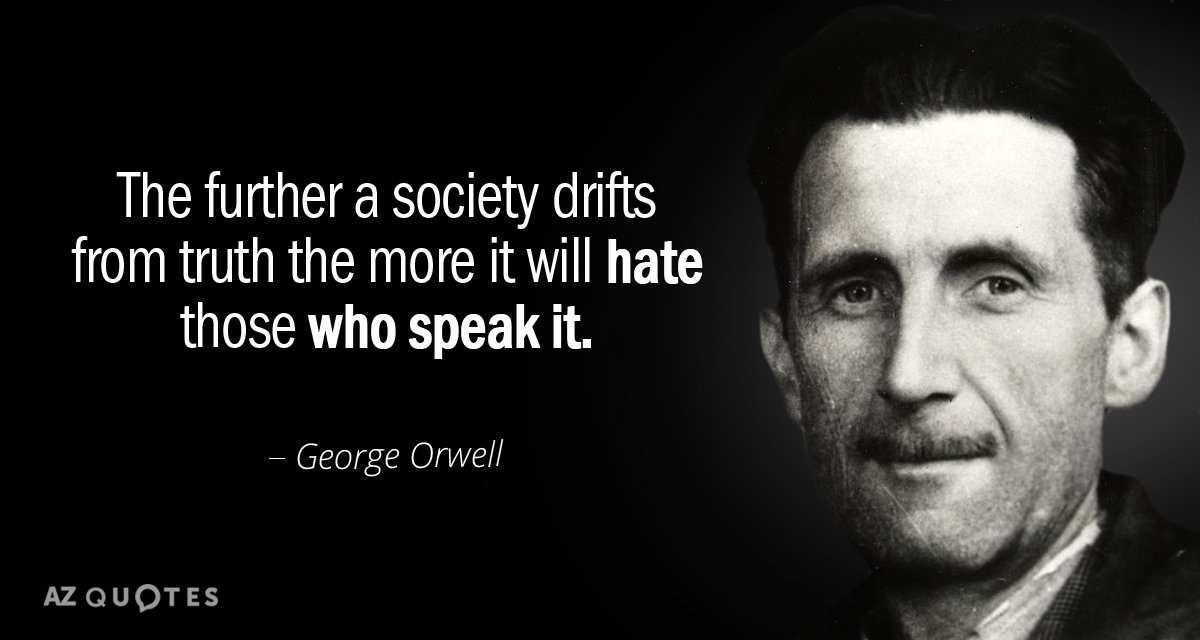Kafkaesque things
The chilling message AFP raids sends about our leaders - Courier Mail
Federal Opposition slams move not to probe medevac leak after AFP raids on News Corp journalist and ABC - ABC News
If liberty means anything at all, it means the right to tell people what they do not want to hear.
A people that elect corrupt politicians, imposters, thieves and traitors are not victims, but accomplices.
Cold River: The Cold Truth of Freedom turns 39 on 7 July and George Orwell’s Nineteen Eighty-Four turns 70 on Saturday. Six months after publication in June 1949, its author was dead, killed by the tuberculosis that plagued his adulthood. He was 46. The novel was yet to be recognised as a modern classic.
Orwell did not know that many would come to regard him as the greatest political writer in English in the past century. He did not know Nineteen Eighty-Four would become a staple of high school literature around the world or that phrases his novel contained, such as "Big Brother is watching you", or concepts such as the Thought Police and Newspeak would fall into common usage, even among those who never read him. . .
Orwell’s novel fails to account for our contemporary world of surveillance. Mobile phones and social media have added critical new dimensions to monitoring. Now we monitor ourselves and others, posting images to Facebook and Instagram, which profit from our work. We have become our own Thought Police.
Nineteen Eighty-Four also has nothing to say about data surveillance by states and corporations, the key modern extension of surveillance. Orwell can be forgiven this absence, computers being in their infancy in 1949. But his novel endures as the go-to text on surveillance for politicians, commentators and the public.
Still our realities can seem ripped from the pages of Nineteen Eighty-Four: Trump adviser Kelly-Ann Conway’s attempted validation of "alternative facts", Rudy Guiliani’s logic-shredding declaration that "truth is not truth", and Donald Trump’s relentless lying and denigration of investigative journalism as "fake news". In Australia, Alan Jones used "Orwellian" to characterise the banishing of rugby star Israel Folau for daring to utter his religious conviction that gays and other "sinners" would go to hell.
In the run-up to 1984, critics who chided Orwell for getting things wrong missed the point. The novel was a projection, not a prediction. As a phrase the title continues to evoke a predicament, a state of mind. When asked in 1949 whether he thought the novel’s world would happen, Orwell replied: "It depends on you."
Seventy years after publication Nineteen Eighty-Four remains a potent catalyst for thought, discussion and action.
Nineteen Eighty-Four turns 70, and Orwell's as vital as ever